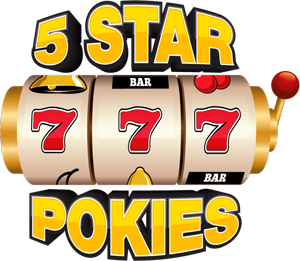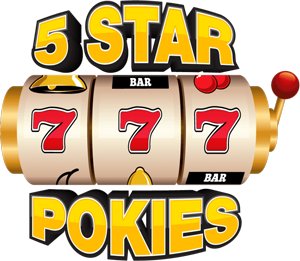Responsible Gambling- We are here to help you
Ever feel like you just want to BLOW UP THE POKIES? We all like to gamble from time to time; it’s fun and exciting! The thrill you get from taking a risk and winning big as a result is a powerful motivator to keep on gaming.
But it’s important to remember that gambling, like many types of thrills we spend money on regularly, can get out of hand. The following tips will help you gamble responsibly so you can stay on track with your gambling.
Moderation
The best way to gamble responsibly is through moderation. This means something different for many people. Some punters can gamble every day for years without developing a problem. Maybe they only gamble for 30 minutes a day, or set limits to the amount they gamble.
This is an important step to gambling responsibly: setting limits. Your bankroll will go a long way if you set yourself a reasonable limit on what you can afford to lose. Of course we want to win, that’s the attraction. But preparing for the worst case scenario is the best way to keep yourself out of debt and continue to have fun gambling.
Never Bet More than You Can Afford to Lose
Set aside a gambling budget, just like everything else you spend money on. You know you’re going to have to set aside X amount of dollars every month for things like rent, car payments, and food, so it’s also important to do the same with your gambling budget. Think of it as disposable income, like going to the movies or eating out in a nice restaurant.
If you’re cutting into your rent money to gamble, you are already crossing the line into the potential for problem gambling.
Learn When to Walk Away
Sometimes we all run into a losing streak when gambling. The best thing you can do when you can’t seem to win is to simply walk away. You can always come back to gamble again another day. If you set limits on your gambling bankroll like mentioned above, it’s that much easier to call it quits when it’s time to do so. Start with a reasonable limit, like 30 minutes or $30 per session.
Never Gamble with Credit Cards
Your credit card has a limit, but that doesn’t mean you should max it out, right? All credit cards do for you is to help you spend money you don’t have right now. It’s ok if you use a credit card to deposit some funds in your online casino account, but it should be a pre-determined amount, one which you can pay off monthly.
Or better yet, use a debit card to fund your bankroll. That way, you only spend the cash you have on hand, and you can’t go into debt.
How to Recognise a Gambling Problem
According to medical experts, gambling addiction (also called a gambling disorder, pathological gambling, or compulsive gambling) is an impulse-control disorder which affects between 3% – 10% of adults, depending on the country and ease of access to gambling.
But how do you determine if you have a problem with gambling? The experts help answer this question in 2 ways: by determining the causes of addiction, including who is at risk for gambling addiction, and signs to watch out for, or symptoms.
While none of the following situations guarantees a gambling problem in every person, they help zero in on key risk factors which might lead to problem gambling.
- Pre-existing health conditions:People who already have psychological disorders like bipolar disorder, ADHD, depression, or anxiety-related conditions should not gamble.
- Heredity:If gambling addiction runs in the family, it is highly likely that you are at risk for developing a gambling addiction.
- Medications:The side effects of certain medications can lower a person’s resistance to addictive behaviour.
- Age:Persons under 35 years of age have a greater risk of gambling addiction than older people. In fact, research shows that 40% of adults with a gambling addiction started before they were 17.
Symptoms of Gambling Addiction
If you or someone you know displays 2 or more of the following symptoms of gambling addiction, it may be time to seek professional help.
- Restlessness and irritability when they try to stop gambling
- Resorting to gambling as a way to relieve stress
- Lying about their gambling activity or the frequency of their gambling
- Stealing, borrowing, or relying on others to fuel their gambling habit
- Willingly putting their relationships, careers, and future at risk
- Unable to control urges to continue playing, even when they cannot financially afford it
- Chasing losses, or throwing good money after bad
How to Seek Help for Gambling Addiction
If you’ve tried our advice about moderation, bankroll limits, and when to walk away, but simply can’t, there’s help. Australians are enthusiastic gamblers, representing one of the largest gambling consumers in the world. Naturally, there is help out there for gambling addiction, should you need it.
Casinos don’t want their customers to become gambling addicts, and many offer avenues of help when someone feels they need help. A reputable casino has information in place to help their customers who feel they might be developing a gambling problem.
For Australians, help is just a phone call away at the following groups, or you can contact them by chat or email as well.
Gambling Help Online
24/7 support is available for anyone affected by gambling. Simple contact Gambling Help Online. You can get general information, counselling, and gambling addiction help at this great resource. They also offer online chatting options.
Lifeline
Lifeline deals with crisis support for those with the most severe gambling issues. Feelings of depression are common among serious gambling addicts, and Lifeline can help when there seems like there’s no hope. They have a dedicated line for suicide prevention as well.
Health Direct
The Australian government sponsors a dedicated site for problem gamblers called Health Direct. They offer free health advice for Australians, with a dedicated section dealing with gambling addiction, its causes, symptoms, and treatment options.
Gambling is an exciting thrill ride of risks and rewards. But like anything you commit your time and money doing, it’s best to read the warning labels first.
For more information on gambling addiction and treatment, browse through the 3 agencies listed above. Each website also offers links to more information for anyone dealing with gambling addiction, for gamblers or someone they suspect has a gambling problem.



